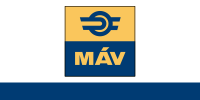
Photo from wikipedia
Abstract As to support the mission of Mars exploration in China, automated onboard planning is required to enhance the security and robustness of deep space probes. Onboard planning here is… Click to show full abstract
Abstract As to support the mission of Mars exploration in China, automated onboard planning is required to enhance the security and robustness of deep space probes. Onboard planning here is a term that defines a complex set of activities or states aiming at deciding the daily tasks on a probe and at figuring out if mission goals are met. Deep space onboard planning requires modeling of complex operation constraints and focusing on intricate state transitions of involved subsystems. Also, devices of various operation modes and multiple functionalities, which are ubiquitous in physical systems, are intractable in onboard planning and have not been effectively handled. To cope with these difficulties, we introduce an approach of knowledge representation that explicitly establishes the mentioned features. The key techniques we build on are the notion of timeline-based planning tasks and heuristic estimate method designed on internal state transition graphs. Furthermore, state transitions have provided crucial information for search guidance, and a search algorithm joint with internal state transition graph heuristic method is proposed to avoid redundant work. Finally, we run comprehensive experiments on selected domains, and our techniques present an excellent performance compared to the algorithm in Europa2.
Journal Title: Acta Astronautica
Year Published: 2018
Link to full text (if available)
Share on Social Media: Sign Up to like & get
recommendations!